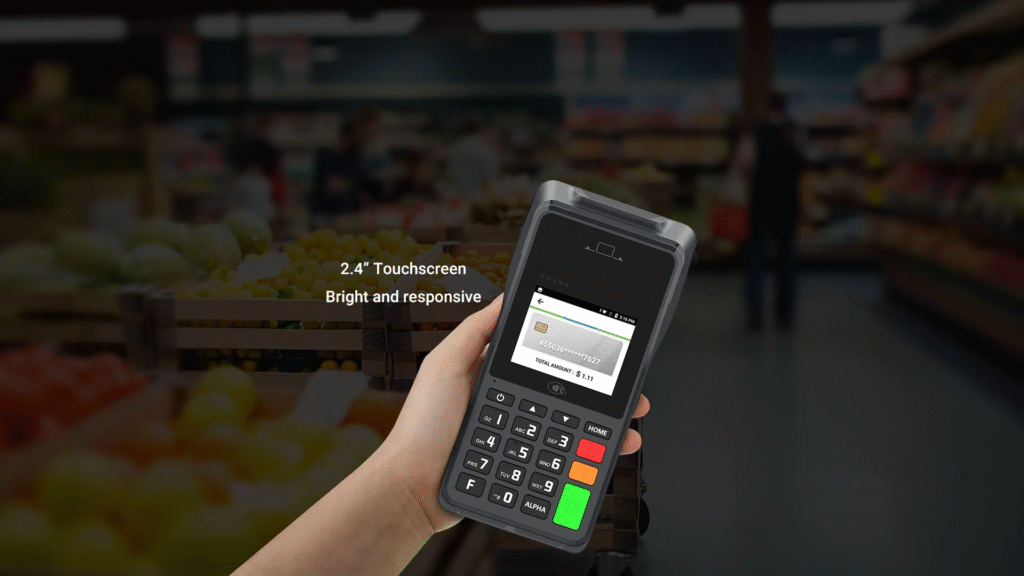Walk through any Nigerian market today, from Balogun in Lagos to Mile 3 in Port Harcourt, and you’ll see something remarkable. Between trays of produce, plastic tables, and stalls of fabric, small POS terminals now sit proudly beside sellers.
What was once a tool for large retailers and banks has become a lifeline for millions of everyday entrepreneurs. Market women, roadside vendors, and corner‐shop retailers are embracing digital payments not as a luxury, but out of necessity, and in doing so, they are driving one of the most powerful economic shifts in Nigeria’s history.
The Rise of POS & Digital Payments in Nigeria
Nigeria’s informal economy is massive, accounting for over half of the nation’s GDP and employing the majority of its workforce. Yet for years, it ran almost entirely on cash. Cash was convenient, yes, but also limiting vulnerability to theft, counterfeit, and human error.
When POS terminals began spreading across markets, everything changed. Suddenly, even the smallest trader could accept card payments, transfer money instantly, and keep digital records of sales.
For the first time, small business owners gained access to a level of financial inclusion previously reserved for larger enterprises.
The growth of POS terminals and electronic payment channels in Nigeria has accelerated dramatically in recent years, driven by both consumer behaviour and policy shifts.
· In March 2024, the number of deployed POS terminals across Nigeria hit 2.7 million, up about 50% from the same time the previous year. Nairametrics
· By March 2025, deployed POS terminals were estimated at 5.90 million, a 119.46% rise compared to March 2024. New Telegraph
· The total value of POS transactions in 2024 reached ₦18 trillion, a 69% increase over 2023’s ₦10.7 trillion. The Newsmatrics+1
· In Q1 2025 alone, electronic payments across all channels rose by about 24.4% year-on-year, totaling ₦295.5 trillion, with POS transactions alone contributing roughly ₦10.52 trillion of that sum. Businessday NG+2nigeriannewsdirect.com+2
These figures show momentum. POS adoption is no longer marginal, it is central to how billions of naira move daily in the informal economy.
Why POS Adoption Matters
Here are deeper reasons why this shift is changing business realities:
1. Reaching New Customers
Cash-only businesses are increasingly missing out. Urban Nigerians, especially in cities like Lagos, Abuja, and Port Harcourt, prefer digital payment options for convenience. With millions of POS devices now active (≈5.9 million as of early 2025), vendors are able to serve customers who don’t carry cash or who prefer card or mobile payments.
2. Reducing Risk, Boosting Trust
Handling large volumes of cash daily carries risks: theft, loss, counterfeit notes. POS systems cut down exposure to these issues. Each transaction is recorded, creating audit trails. This transparency builds trust, both with suppliers and customers.
3. Improving Cash Flow
Waiting days for funds to arrive can stall restocking, payroll, or taking advantage of supplier discounts. With POS systems like Fidesic settling faster (especially under fintech-led solutions), businesses regain control over working capital. With over ₦10 trillion in POS transaction value in Q1 2025, many businesses are already benefiting from more consistent cash flow. nigeriannewsdirect.com+2TechCabal+2
4. Accessing Finance & Growth Tools
Financial institutions and fintechs rely on traceable transaction history to assess risk. A vendor with steady POS receipts has better chances of securing small loans, credit, or micro-insurance. Records from POS transactions serve as proof of income, shifting many informal businesses toward formal credit access.
5. Economic Inclusion & Scale
According to Moniepoint’s 2024 informal economy report, nearly 90% of informal businesses in Nigeria make less than ₦500,000 monthly profit; only about 1.3% report over ₦2.5 million. Businessday NG These businesses operate with tight margins; for them, better payment systems are not optional. They matter for livelihoods.
The number of active POS terminals shows that services are becoming more accessible across regions. With electronic payments rising, communities traditionally underserved by formal banking are gaining inclusion.
At VigiPay, we see these entrepreneurs not just as customers, but as partners. We’ve framed our service around what matters most in these statistics:
· Fast, reliable transactions: so vendors don’t lose sales because of failed payments or long waits.
· Same-day settlements: to help turn earnings into reinvestment quickly.
· Transparent pricing: no surprise fees eroding slim margins.
· Local support: understanding local market hours, cash shortages, network outages, and responding in real time.
When POS infrastructure works well, the informal economy thrives.
Whether you’re a market woman, supermarket owner, agent, or small retailer, your hustle deserves speed, security, and support. Join the thousands of Nigerians already trusting VigiPay to power their payments.
Visit vigipay.co to learn more.

